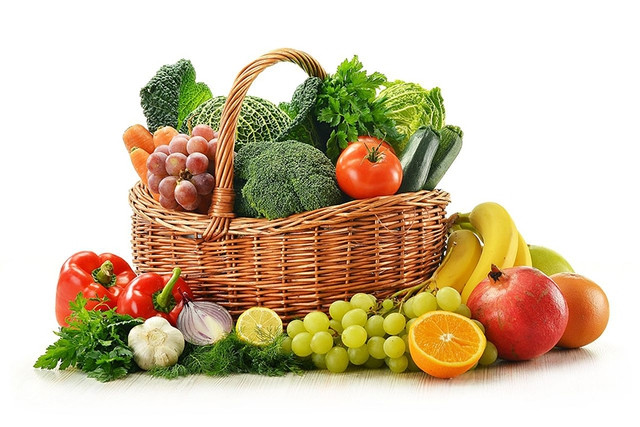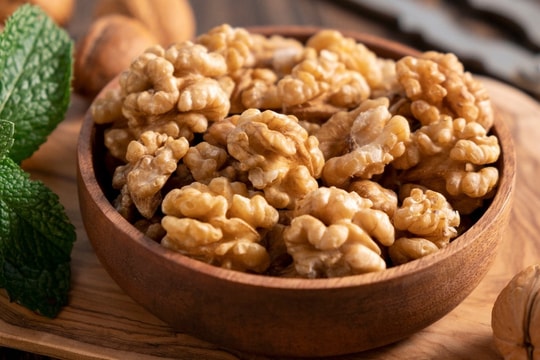9 Best Foods to Eat When You're Sick
You may not feel like eating when you're sick, but certain foods can help ease the symptoms of fatigue and discomfort.
The changing weather, erratic temperature changes, and high relative humidity make many people feel sick, tired, and have reduced resistance, making them susceptible to respiratory infections such as flu, sore throat, rhinitis, fever, etc.
When sick, people often lose their appetite, have indigestion, feel nauseous or feel bloated after eating. Choosing the right foods when sick can reduce symptoms and help the body recover quickly.
1. Chicken is rich in nutrients
There is a belief that people who are sick with a fever due to the flu or a lot of cough should not eat chicken because it will make the disease worse. However, nutritionists advise that sick people should not abstain from this nutritious food.
Chicken is a high protein food, low in harmful fats, providing many vitamins and essential nutrients that help patients receive enough nutrients to strengthen their bodies and restore their health effectively, while being easy to digest and absorb.
Chicken is a rich source of vitamins and minerals such as vitamin B6, B12, selenium, iron, zinc, etc., which help strengthen the immune system.
2. Beans are rich in fiber
Irregular eating and lack of exercise when you are sick can easily lead to constipation. Fiber-rich foods help relieve constipation by softening stools while you drink enough water. Beans, including black beans, kidney beans, and soybeans, are good sources of fiber. Dried beans are also a good source of magnesium, which helps reduce body and muscle aches. Some evidence suggests that magnesium reduces inflammation, which often causes pain when the body is infected with a virus.
3. Cereals and oatmeal
Choose whole-grain oatmeal and bran cereals if you have constipation. These cereals contain fiber, which helps regulate bowel movements. Be sure to drink plenty of water with a high-fiber meal like oatmeal. Fluids help relieve constipation by making stools easier to pass.
4. Drink enough water when sick
When you are sick, your body is easily dehydrated and becomes more tired. Therefore, it is very necessary to provide enough water for your body with liquid foods, rich in water such as soup, porridge, soup. You should also drink plenty of water so that your cells function more optimally. Drinking water also helps your throat not to be dry, dry throat makes sore throat worse. Experts recommend drinking 8-10 glasses of water daily. Fluid needs depend on your activity level, environment, health status and weight.

Drinking warm green tea, rich in antioxidants, will help reduce the unpleasant symptoms of illness and speed up the body's recovery process. If you have a runny nose, a soothing herbal tea like peppermint tea will help you feel better. Ginger tea helps soothe the stomach. Ginger has anti-inflammatory properties that help reduce nausea. Natural juices like coconut water and fresh fruit juices are also suitable for sick people who need vitamin supplements.
5. Eggs are suitable for sick people
Some advice suggests that eggs are high in calories and therefore people with fever should not eat eggs as it can cause the body temperature to rise rapidly. This has not been clearly proven. Nutritionists say that cooked eggs are part of a healthy diet.
Eggs contain protein, many vitamins and minerals such as calcium, potassium, zinc which are very beneficial for health. Protein in eggs is easily absorbed so it is suitable for sick people to help restore health.
6. Fatty fish
Fatty fish is a good source of omega-3 fatty acids. Omega-3s are effective in reducing inflammation, a sign that your body is fighting off an infection like a cold or flu. Some evidence suggests that omega-3s may also ease skin problems like itching, which can be a symptom of allergies.
7. Fruits and vegetables

Some cooked fruits and vegetables in soups or stews are good for people who are sick. For example, applesauce, bananas, and potatoes provide essential nutrients that you may lose if you have diarrhea or vomiting. Applesauce is a good source of potassium and vitamin C, but has less fiber than apples with skin. Bananas and potatoes also contain potassium. Baked or mashed potatoes are also soft enough to eat if you have a sore throat. Additionally, polyphenols—plant compounds in green leafy vegetables—have been shown to reduce the inflammation that causes pain when you are sick.
8. Nuts and seeds
Nuts contain fiber, which helps relieve and prevent constipation. Chia seeds, flax seeds, and walnuts are also sources of omega-3s, which can help reduce inflammation if you have body aches, earaches, or itching.
9. Low-fat or fat-free yogurt
Yogurt is a source of probiotics, or bacteria that support gut health. Probiotics may help reduce diarrhea.
Choose low-fat or fat-free dairy products, including yogurt, if you have diarrhea or an upset stomach. Greek yogurt can be a good substitute for traditional yogurt if you have trouble digesting lactose.


